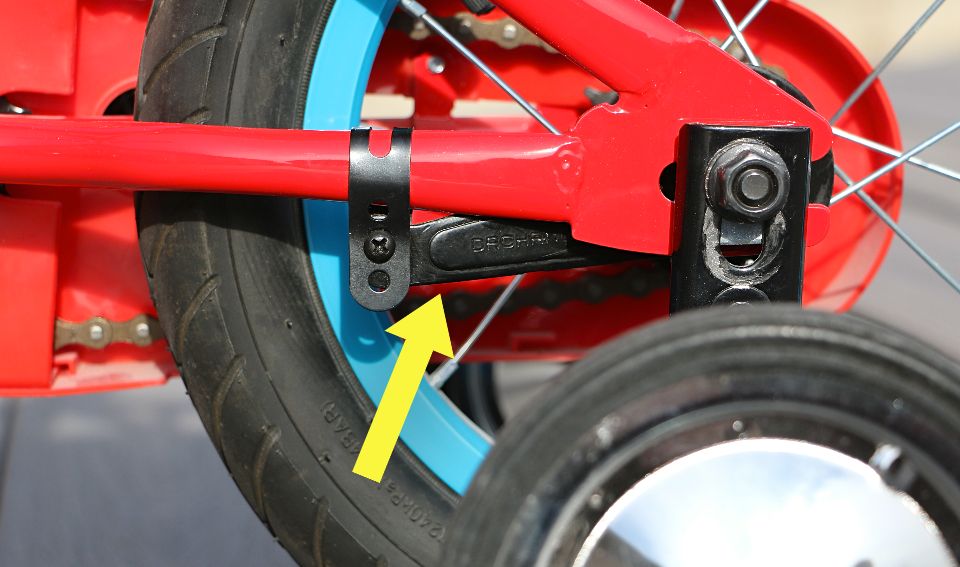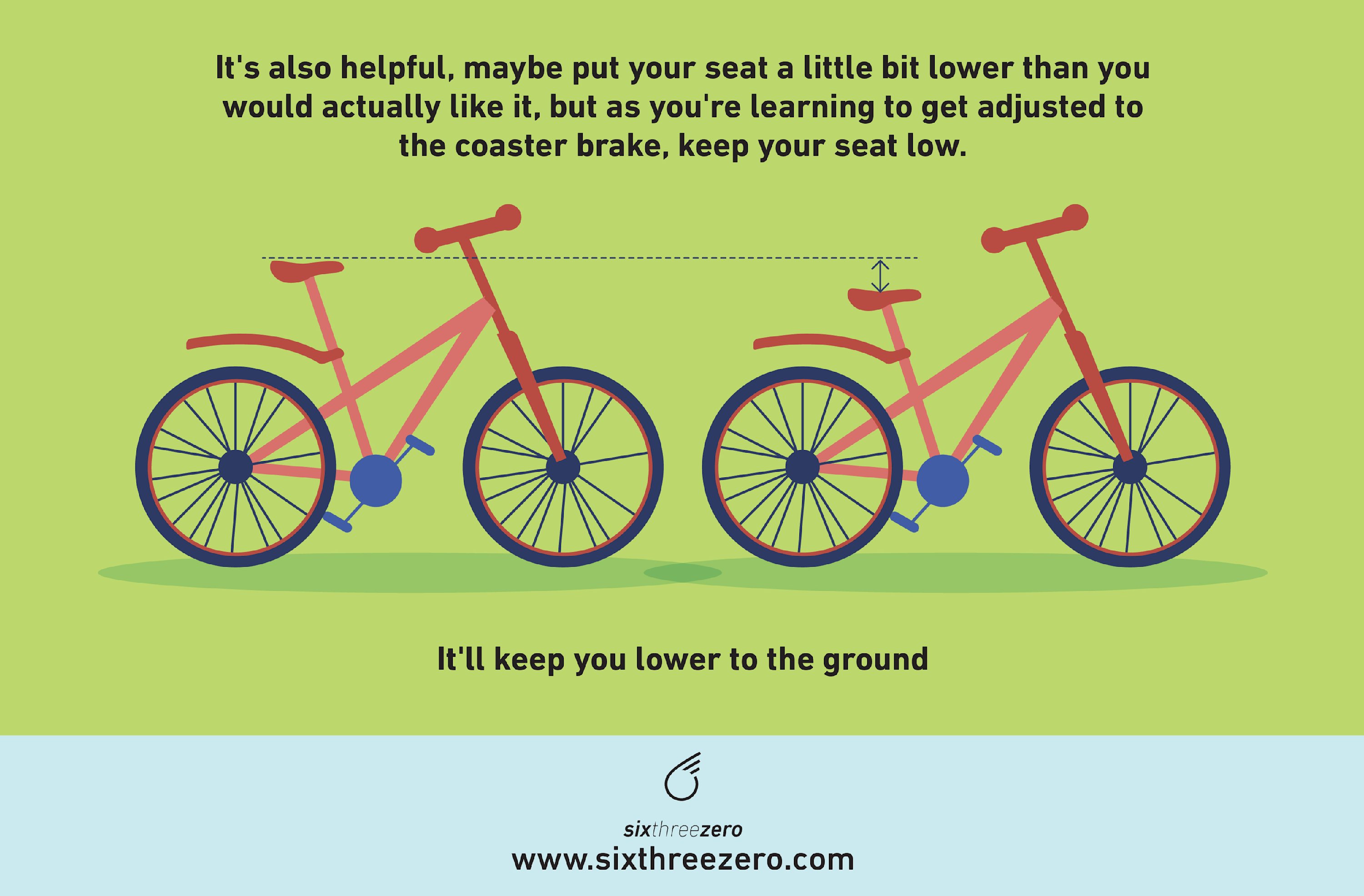Stunning Tips About Can You Coast With A Coaster Brake

What Are Coaster Brakes On A Bike? PedalChef
Coaster Brakes and Coasting
1. Understanding the Basics
So, you're wondering if you can just kick back and coast on a bike equipped with a coaster brake, huh? It's a fair question! Coaster brakes, those trusty mechanisms where you pedal backwards to stop, are a staple on many kids' bikes and some adult cruisers. But the ability to coast freely with them? That's where things get a tad more nuanced.
Let's get one thing straight: technically, yes, you can coast with a coaster brake. However, it's not quite the same experience as coasting on a bike with hand brakes or a freewheel. The key difference lies in the mechanics of the system.
With a freewheel (found on most modern bikes with hand brakes), the rear wheel can spin independently of the pedals. This allows you to stop pedaling entirely and just enjoy the ride, letting gravity and momentum do their thing. Think of it like being on a swing — you pump to get going, then just relax and swing back and forth.
A coaster brake, on the other hand, is directly linked to the pedals. When you pedal forward, you propel the bike. When you pedal backward, you engage the brake. The "neutral" position — where you're not actively pedaling forward or backward — is where you technically coast. But it requires a bit of finesse to maintain that balance.

The Art of Coaster Brake Coasting
2. Finding the Sweet Spot
Here's the tricky part: because the coaster brake is activated by pedaling backward, there's a very small "window" of non-engagement. This is the space where you're not pedaling forward enough to propel the bike, but you're also not pedaling backward enough to activate the brake. It's a delicate dance of pedal positioning.
Imagine trying to balance a see-saw perfectly in the middle. That's kind of what it feels like trying to coast smoothly with a coaster brake. You have to keep the pedals in that just-right position to avoid unwanted braking. This can require a bit of practice and muscle memory.
Experienced riders can often master this technique, achieving a smooth (though not always silent!) coast. However, beginners might find themselves inadvertently applying the brake more often than they intend, leading to jerky stops and a less-than-relaxing ride. So don't be discouraged if you accidentally brake more than you coast at first.
Think of it as learning to ride a unicycle. It seems impossible at first, but with persistence, you get the hang of it! Coasting with a coaster brake isn't quite as difficult as mastering a unicycle, but it requires a similar level of coordination and control.

The Pros and Cons of Coaster Brake Coasting
3. Weighing the Benefits and Drawbacks
So, is it worth the effort to master the art of coaster brake coasting? Well, that depends on your priorities and riding style. There are definitely some advantages and disadvantages to consider.
On the plus side, learning to control your coast with a coaster brake can improve your overall bike handling skills. It forces you to be more aware of your pedal position and develop a finer sense of balance. Plus, there's a certain satisfaction in mastering a slightly quirky piece of bicycle technology.
However, the main drawback is the potential for accidental braking. Especially in situations where you need to react quickly or maintain a consistent speed, the sensitivity of the coaster brake can be a hindrance. Imagine trying to navigate a crowded bike path and constantly having to readjust your pedal position to avoid braking — it can be a bit stressful!
Furthermore, coaster brakes tend to be less effective than hand brakes, especially in wet conditions or on steep hills. This means that relying solely on a coaster brake for stopping power can be risky in certain situations. For most adults who rely on biking, multiple braking systems are much preferred.

How To Add A Coaster Brake Bike Kells Knours00
Alternatives and Considerations
4. Exploring Your Options
If you're looking for a bike that offers more effortless coasting, you might consider a model with hand brakes and a freewheel. These bikes allow you to coast freely without having to worry about pedal position. They also offer more reliable and consistent braking performance.
Another option is a bike with a multi-speed drivetrain. These bikes allow you to adjust the gear ratio to match the terrain, making it easier to maintain a consistent speed without having to constantly pedal. This can be especially helpful on hilly terrain or when riding into a headwind.
Ultimately, the best type of bike for you depends on your individual needs and preferences. Consider how you plan to use the bike, your riding style, and your comfort level with different braking systems. Don't be afraid to try out different models and see what feels best.
Before buying any bike, give both handbrake and coaster brake bike a test drive. See which braking system works best for you and if the minimal coasting with the coaster brake is too short for your taste. You might be surprised by your choice.

What Is A Coaster Brake On Bike How To Use Brakes Do
Coaster Brake Coasting
5. Your Questions Answered
Still scratching your head about coaster brakes and coasting? Here are a few frequently asked questions to clear things up:
6. Q
A: Generally, no. Coaster brakes are fairly simple mechanisms and don't typically offer adjustable sensitivity. The engagement point is usually fixed. However, making sure the brake is properly lubricated can improve its overall performance.
7. Q
A: It can be. In certain situations, such as riding in wet conditions or on steep hills, a coaster brake might not provide sufficient stopping power. It's always a good idea to be aware of your surroundings and ride defensively, regardless of the type of brakes you have.
8. Q
A: Definitely not. Coaster brakes are primarily designed for casual riding and are not appropriate for more demanding cycling activities. For mountain biking or road racing, you'll want a bike with high-performance hand brakes and a wide range of gears.
9. Q
A: Coaster brakes are often found on kid's bikes because they are simple to use and require minimal maintenance. Young children may not have the hand strength or coordination to effectively use hand brakes, making coaster brakes a safer and more practical option.
